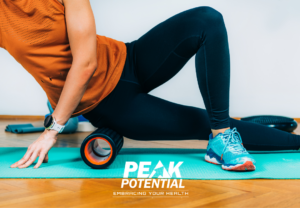
Have you ever experienced the room spinning, feeling lightheaded when you stand up too quickly, or a sense that you just can’t keep your balance?
Most of us have experienced this at one time or another.
Some call it dizziness – which is usually described as lightheaded – but it is also referred to as vertigo – more of a sense that the room is spinning. Both dizziness and vertigo are symptoms that are caused by an underlying condition. Sometimes this condition can be treated and sometimes our bodies must habituate to the feeling so the sensation isn’t as strong.
Whatever the actual reason is for your symptoms (head trauma, inner ear deposits, stroke, or medication induced) it causes your senses tell your brain that your body is off balance – even when it isn’t.
Sometimes an episode of vertigo with only happen once and be short lived, but other times it reoccurs or lasts for days. If not taken care of, this starts to seriously disrupt your life. In this case, there are a few things you can do to get the room to stop spinning.
-
Staying hydrated
Staying hydrated helps prevent or minimize dizziness, because dehydration can trigger symptoms. When we don’t get enough fluids, our blood volume decreases, lowering our blood pressure and making us feel lightheaded.
You can increase your blood volume simply by drinking more water – 8 to 12 cups per day. And don’t wait until you are thirsty because at this point your body is already slightly dehydrated.
-
Drink Some Tea
Did you know that drinking ginger root tea can help with dizziness, nausea, and vertigo? You can buy tea bags or just steep ginger root in a cup of boiling water for 5 minutes (you may need to add a little something sweet to cut the bitterness).
A recent research study confirmed the effectiveness of this ancient remedy. They believe it is due to the ginger root improving blood flow to the brain. Similar effects may be achieved with a handful of almonds or a few ounces of Apple Cider Vinegar.
-
Focus on Something Stationary
When you feel symptoms coming on, try to find a place to sit if you are standing or something sturdy to lean against. Whatever position you are in, stop what you are doing and find a stationary object to focus on.
By doing this you will help your blood pressure normalize and keep your sensory system (your eyes and inner ears) from playing tricks on you. Remember, it is the senses that are sending the signal to your brain that you are off balance.
Give these a try and see how you feel. Or, fast track your results by getting help from an expert.
Did you know that physical therapist are trained to treat dizziness, vertigo, and subsequent balance problems? They have several tools in their “box of skills” to address these conditions. Depending on your unique problem, this may include . . .
-
Performing a positional maneuver to move the crystals in your inner ear (the most likely treatment if you have BPPV – benign paroxysmal positional vertigo)
-
Train your brain to “correct” the errors it is receiving (this is critical if you have a neurological condition or head injury)
-
Guide you in activities to improve your ability to focus your eyes and vision
-
Work through exercises to improve your balance
-
Teach you exercises to desensitize your sensory systems (called habituation)
Our experts would be happy to discuss these treatment options with you further and see if you are candidate for one (but usually a combination) of these interventions. Request a FREE call from one of our Doctors of Physical Therapy today by clicking the button below.




